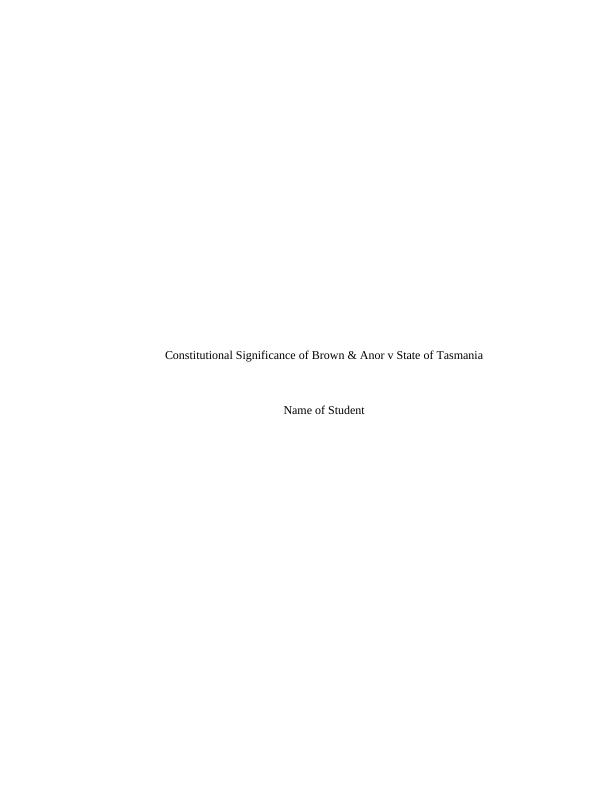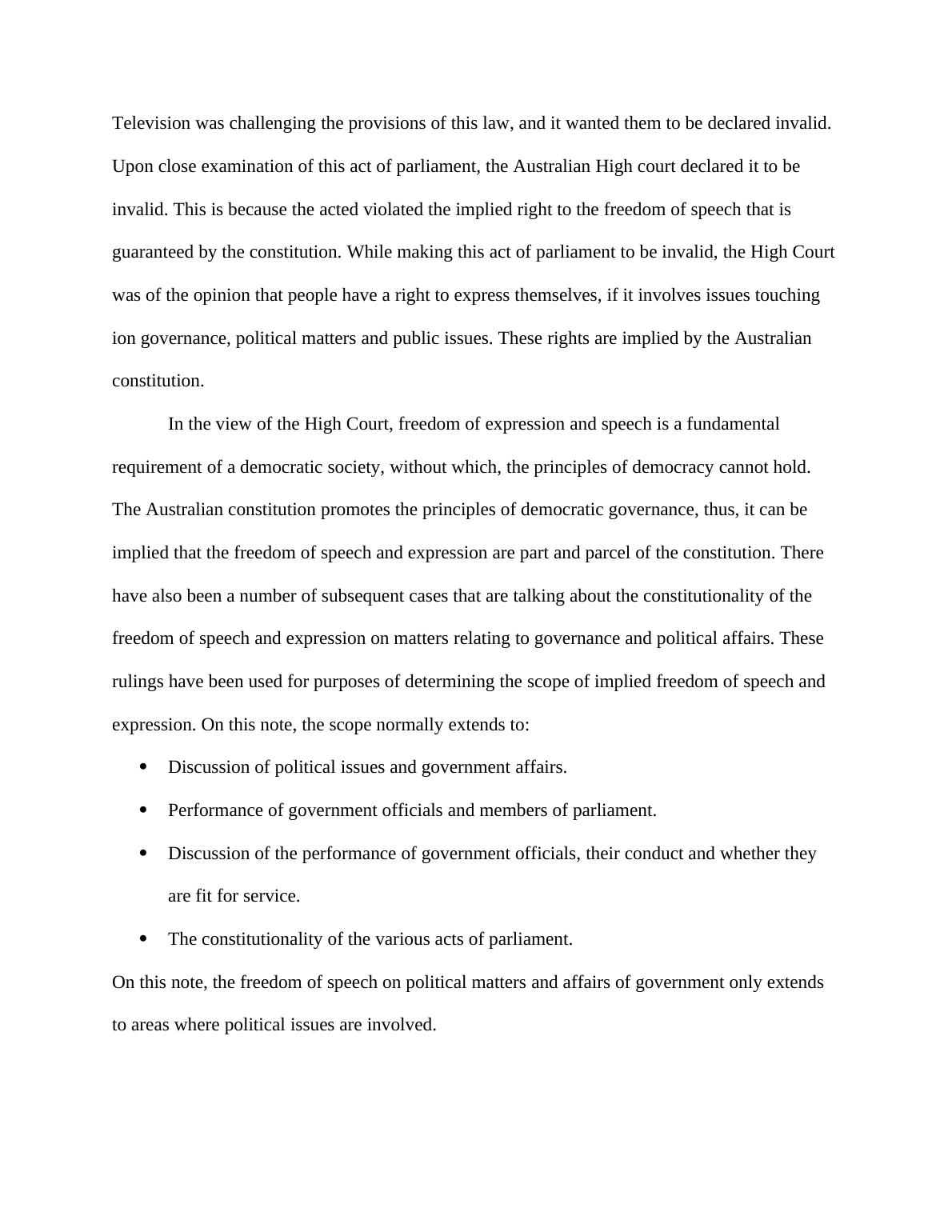Ask a question from expert
Constitutional Significance of Brown & Anor v State of Tasmania
7 Pages1680 Words151 Views
QUEENSLAND UNIVERSITY OF TECHNOLOGY
Constitutional Law (LLB203)
Added on 2020-03-07
About This Document
In this document, we will discuss the constitutional significance of a case by the name of Brown & Anor v The State of Tasmania. This is a case that sought to argue that the protection from Protests Act was unconstitutional and violated the implied right to freedom of political speech and expression. Also, we cover how the Protection from Protests Act could be used to determine the 1983 case of the Commonwealth of Australia v The State of Tasmania.
Constitutional Significance of Brown & Anor v State of Tasmania
QUEENSLAND UNIVERSITY OF TECHNOLOGY
Constitutional Law (LLB203)
Added on 2020-03-07
BookmarkShareRelated Documents
End of preview
Want to access all the pages? Upload your documents or become a member.
The implied freedom of political communication
|12
|3184
|28
Brown v Tasmania (2017) 261 CLR 328: A special case on the laws of the Tasmanian forestry protests and the implied freedom of communication
|9
|2303
|233
Monis v The Queen Case: High Court of Australia
|6
|1785
|419
The Impact Freedom of Political Case Study 2022
|7
|2212
|15
Implied Freedom Of Political Communication
|9
|2796
|175
Media Law Assignment (Solved)
|8
|1963
|226


